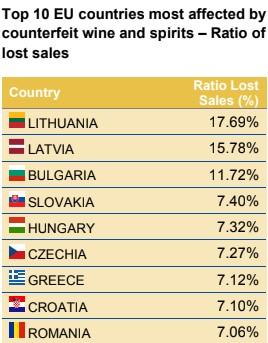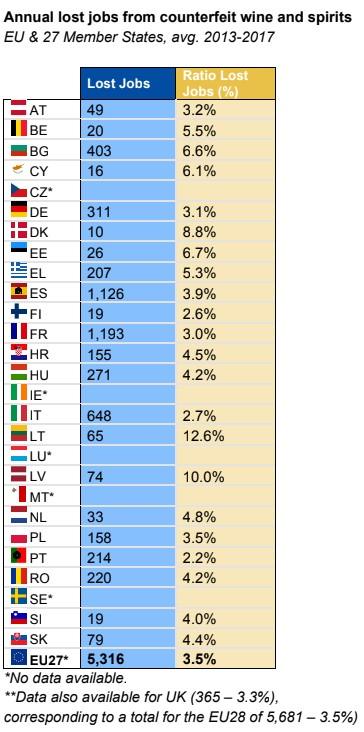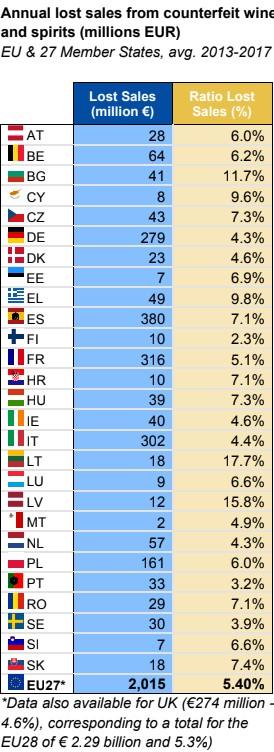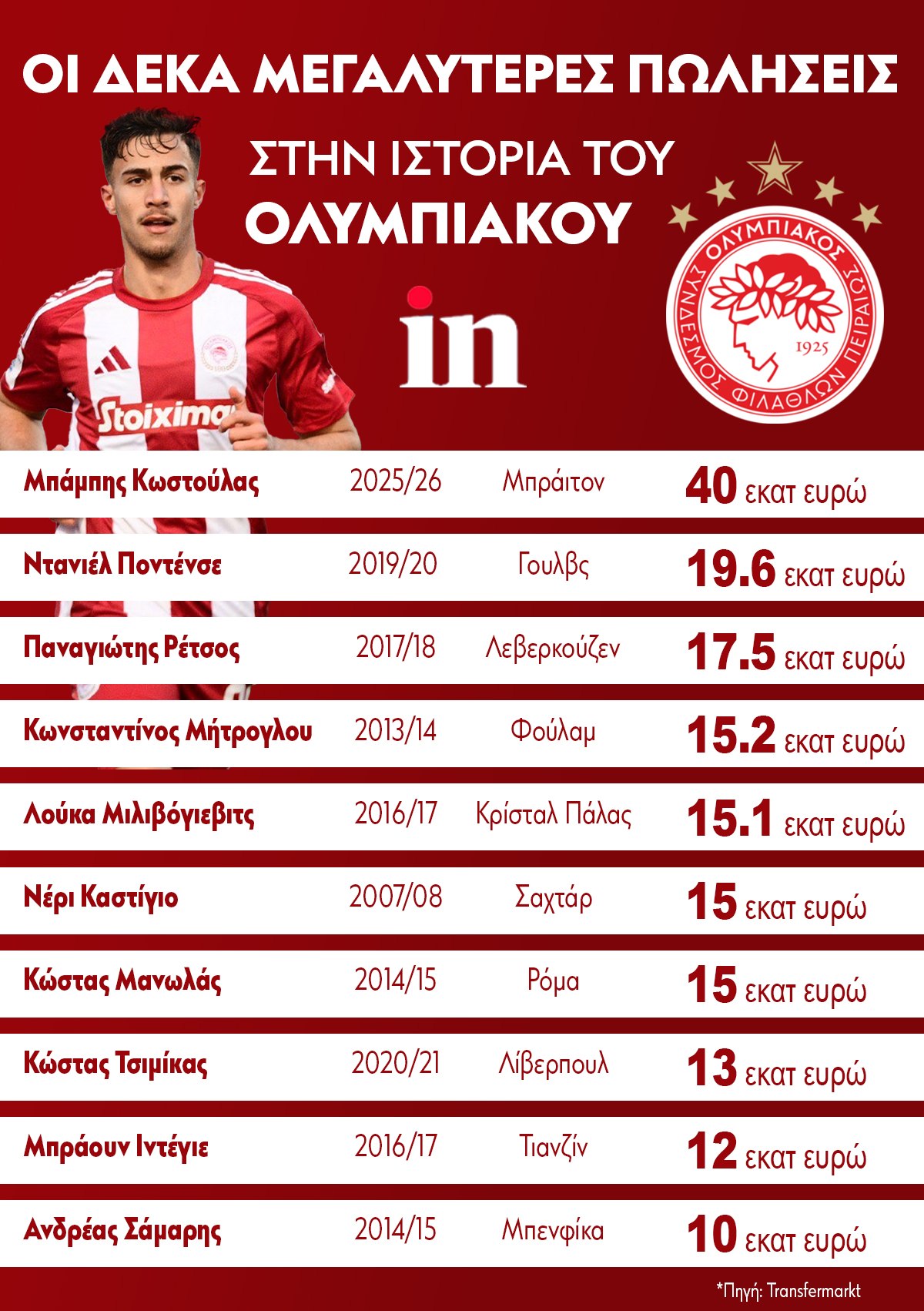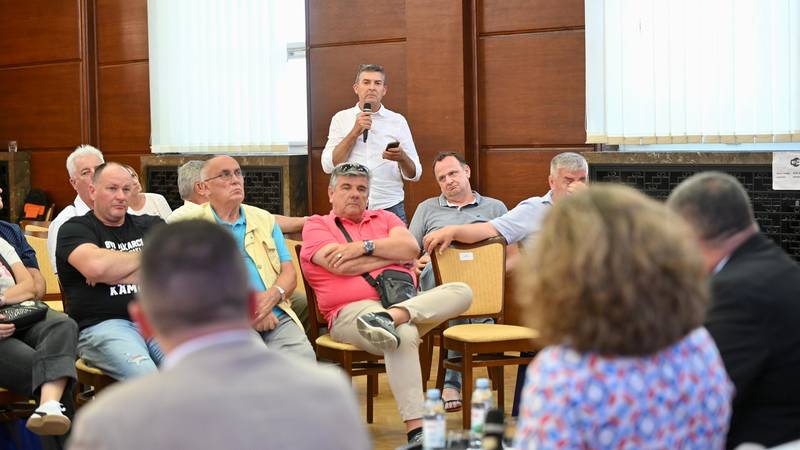How much do the « monkey » products cost in Greece – EUIPO survey
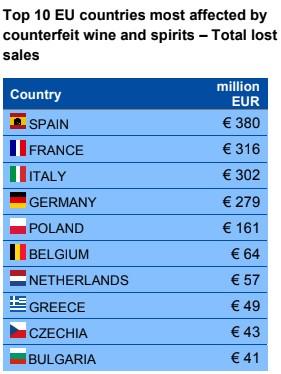
Falsified wines and alcoholic beverages cause significant financial losses in the Greek market, with annual sales losses amounting to 49m euros, according to data from the European Union’s Intellectual Property Office (EUIPO), which were released in the context of a campaign. Greece is in the top ten countries with the highest losses in revenue and jobs from such products.
The relevant EUIPO study, based on data from the period 2013-2017, highlights that the phenomenon of falsification has a direct impact on employment, with annual job losses in Greece exceeding 200 and reaching 207. 5.3% of the whole industry.
Greece has 282 products registered as geographical indications, which protect the names of products derived from specific areas and stand out for their particular characteristics, which are due to the geographical environment. Protected Name Systems (PDO), Protected Geographical Indication (PGI) and guaranteed traditional products (EFS) are essential tools for ensuring the quality and authenticity of products.
Greece is actively involved in the annual EUROPOL and Interpol Opson businesses, which aim to combat food and beverage falsification. As part of Opson in 2024, a European level seized 22,000 tonnes of food and about 850,000 liters of drinks, mainly alcoholic, totaling € 91 million.
The competent authorities point out that the falsification of alcoholic beverages remains one of the most important problems in the industry, as organized criminal groups use increasingly sophisticated methods of deception. These include the reuse of authentic bottles and the use of counterfeit labels, practices that make consumers finding the detection of counterfeit products.
What is going on at European level
Falsified products are often luxury or luxury species or clothing and fashion. However, according to the 2022 report on the assessment of threats to the crime against intellectual property, food – especially biscuits, pasta, crisps and sweets – were the second category of products with the most seizures on the EU external border in 2020.
Wines account for 54% of the total consumption of products with a geographical indication in the European Union, which makes them particularly vulnerable to falsification practices. In addition to wines, the phenomenon also affects olive oil, beer, meat, cheese and dairy products.
The European Police Service report (Europol) to assess the threat of serious and organized crime in the European Union for 2025 (LOCTA), stresses that the development of e -commerce has offered the counterfeit new ways of distributing fake food, making it more difficult for consumers to recognize them. Criminals falsify food labels and packaging and adjust production processes, targeting high -value products.
The risks to health remain primary concern. The Socta 2021 report warns that hazardous substances such as methanol, mercury, fipronil and various insecticides or pesticides have been identified in falsified food products. Beverage falsification, in particular alcoholic, remains a major problem, with organized criminal groups using sophisticated methods to deceive consumers. Falsies often reuse authentic bottles or print fake labels and place them in empty bottles, making consumers more difficult for consumers and authorities to distinguish the lawful products.
The total financial impact
The financial impact is also important. According to EUIPO data, the area of wine and alcoholic beverages was one of the most affected areas in falsification during the period 2013-2017. In total, € 2,289 million was lost in sales and nearly 5,700 jobs were destroyed in the EU per year due to falsification. The loss of taxes from these products was also significant, as it amounted to 2,068 million euros. China and Turkey were among the countries of origin most commonly mentioned for fake food and drinks seized at the EU’s external border in 2019 and 2020.
France, Italy and Germany have a leading position in both the production and the consumption of geographical products, with France representing almost 32% of the sales of European products with a geographical indication. Wine accounts for 54% of the total consumption of products with a geographical indication in the EU, which makes it particularly vulnerable to falsification. Other products that are largely affected by falsification are olive oil, beer, meat, cheese and dairy products.
Source: OT

